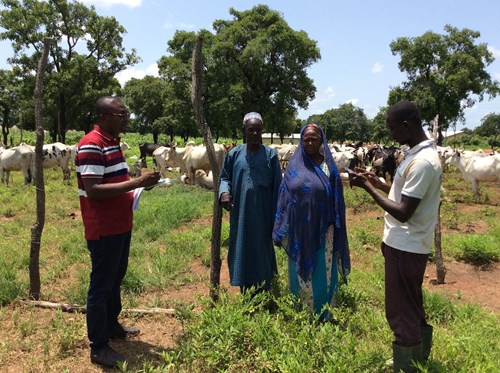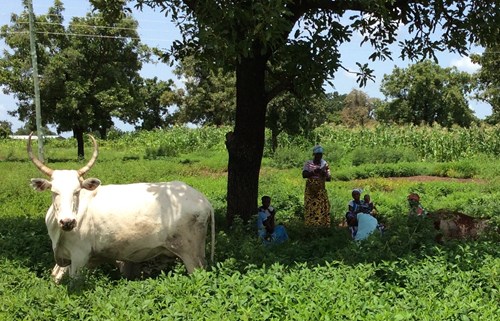Ghana
About Ghana
More than half of Ghana’s population is engaged in agriculture, with women representing around 39% of the labour force on the predominantly smallholder, traditional and rain-fed farms[1].
Due to climate change, farmers are experiencing the negative impact of declining rainfall and soil conditions, rising temperatures and increasing weather extremes. Fertile lands are shrinking as a result[2].
Test sites
The BIO4Africa test sites are located at Nasia and Yagaba-Kubori in the north-east savannah region of Ghana. The area is characterised by intense transhumant pastoralism activities due to its diverse grasslands and annual rainy season.
BIO4Africa will test small-scale bio-based technologies with potential to improve the livelihood and food security of transhumant pastoralist communities and help curtail the nomad/farmer conflict over grazing lands and pasture.
Local farmer involvement
45 farmer groups, including small, medium and large-scale farmers, in and around Nasia and Yagaba-Kubori are providing local forage species for the test site.
[1] Food & Agriculture Organization of the UN
[2] UNDP National Climate Change Adaptation Strategy
Bio-based technologies and feedstock


Bio-based technologies
The test sites will validate the following technologies:
Green biorefinery, producing:
- Press cake for livestock feed, e.g. cattle and other ruminants
- Protein concentrate for use in pilot production of feed pellets for aquaculture
- Liquid whey for piglet feed
Pyrolysis, producing:
- Biochar for soil amendment
Pelletisation, producing:
- High quality cassava peel (HQCP) pellets for pig, ruminant and aquaculture feed
Local feedstock for all technologies will include:
- Gamba grass (Andropogon Gayanus), elephant grass (Pennisetium Purpureum) and the wild-growing lucaena tree (Lucaena Leucocephala)
- Crop residues from local legumes, vegetables, cereals and tuber crops